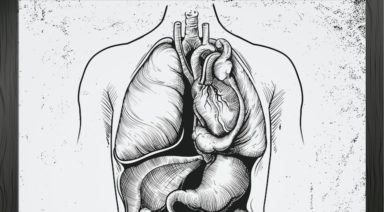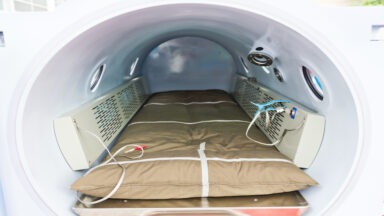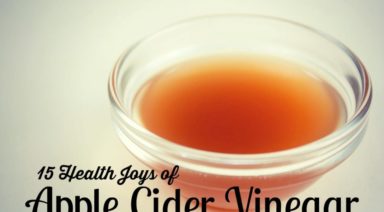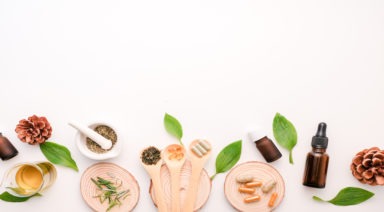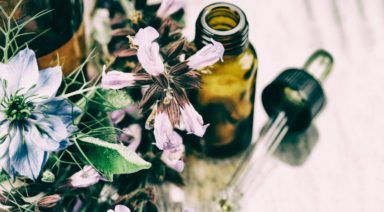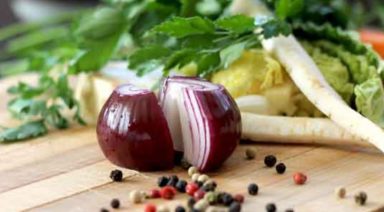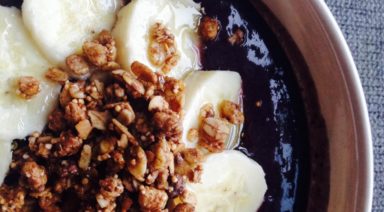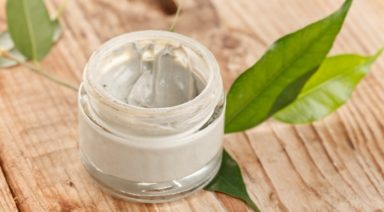Natural Skin Detox: Clear acne prone skin

Acne prone skin can be a nightmare. Have you ever felt so frustrated that no matter how well you eat, what you use and what you take, it seems to have a mind of its own? This is because the skin is a unique organ, which requires simplicity and consistency of action to get it to finally clear. Many articles and books have been written and many lotions and potions have been created to address this issue. I’m here to teach you how to truly clear your skin once and for all.
Skin Anatomy
This is an important first step to know before making any changes. The basic anatomy of the skin that you need to know at his point is that it has many, many layers (epidermis, dermis and subcutaneous tissue) and to create any real or lasting change you need to be consistent. The deeper layers of the dermis take around 4 to 6 weeks to surface to the exterior epidermal layer. This means any dietary or supplementation change you make takes at least that long to show signs of healing. For healing a skin condition, this requires around 3 to 6 months of consistent skin specific eating and supplementation.
Step 1. Detoxify and Clear
Omit congesting and heating foods from your diet
Skin congestion
Acne is caused by an over stimulated oil gland that has become infected. What over stimulates the oil glands? And why do they become infected? Excessive oil production can be caused by hormones, adrenal function, liver and digestive function and diet. The skin will only use the oils you eat in your diet. It is important that you only eat lighter, plant-based oils so they flow freely though the oil glands and decongest what is blocking them.
Congesting foods:
- Animal fats (especially red meats and pork)
- Dairy products (cheese, yoghurt, butter)
- Chocolate
- Commercial sweets (anything baked, bought, with refined sugars, white flours and hidden fats)
When the adrenal glands are stimulated it creates a stress response in the body. This causes the oil glands to flow excessively and also warm up the body temperature, irritating sensitive skin. Any redness, spots or blemishes suggest a sensitive skin type and a ‘hot’ condition according to traditional Chinese medicine.
Stimulating foods and substances for the skin:
- Chili, curry, spicy dishes
- Alcohol
- Caffeine
- Nicotine
- Oranges and strawberries
You need to stay away from these foods and substances for at least 95% of the time for as long as it takes for your cells to turn over. This process is lengthy and you won’t see results immediately but if you are patient, your skin will become clearer and clearer.
Step 2. Rebuild skin cells
Include skin healing foods and supplements
Omitting the congesting and stimulating foods and substances from your diet is detoxifying for your system. It encourages better digestion, elimination and the skin will become clearer. Now we need to include foods and supplements that are encouraging for healing the skin.
Skin healing foods:
You will need to include a daily salad with fresh baby greens and any combination of vegetables with your preferred vegetarian protein source and a skin healing salad dressing*. We need one raw salad a day for the living enzymes to improve digestion, nutrient uptake and elimination. The best vegetarian protein sources are organic free-range eggs, tofu, quinoa, amaranth, chia seeds or lentils.
Essential fatty acids need to be included daily; the best one for skin healing is cold-pressed sunflower oil to be made in a salad dressing. Sunflower oil is lighter oil for the skin and will encourage a smoother flow. Essential fatty acids will moisturize the skin from the inside out. This step is a must. Do not swap sunflower oil to olive oil, fish oil or hemp seed oil. Other ideal essential fatty acid sources for skin healing are; raw almonds, walnuts, avocado, sunflower seed, pepitas, sesame seeds, and tahini. Also, aim to use organic wherever possible.
Skin healing salad dressing
- 1 tablespoon sunflower oil
- 1 tablespoon apple cider vinegar
- Pinch of Himalayan salt, pepper, mixed herbs (optional)
- 1 teaspoon raw honey (optional)
Water
The body needs plenty of water to hydrate and support bodily function and metabolism. However, to clear the skin you only need 6 to 8 glasses on average a day. When too much water is consumed it places a burden on the kidneys and flushes out the much needed water soluble vitamins, namely the B group and vitamin C.
An important step in the skin detox program is to include lemon water first thing every morning to stimulate liver function and hydrate the body.
Useful supplementation
Zinc- hormonal health, skin repair, immunity
B complex- nervous system, digestive system, skin and metabolism
Herbal liver tonic- to improve the digestion and elimination of fats
Example: Daily menu for skin clearing
On rising
- ½ lemon squeezed in water
Breakfast
- Muesli mix with fruit
- Eggs and rye toast with tomato and avocado
- Green smoothie with vegan protein powder (chia seeds, sprouted rice protein powder)
Snack
- Fresh fruit and/or nuts and seeds (see essential fatty acids)
Lunch
- Salad with your preferred vegetarian protein and *skin healing dressing with brown rice
- Salad and egg whole meal sandwich or wrap with dressing
Snack
- Fresh fruit and/or nuts and seeds (see essential fatty acids)
- Low fat yoghurt with honey
- Veggie sticks and avocado and/ or hummus dip
Dinner
- Brown rice, lentils, quinoa, with your choice of protein (see ideal sources) with salad and/ or steamed vegetables
- Vegetable soup
- Stir fry with plenty of green vegetables with honey and soy sauce, brown rice, rice noodles
- Spelt pasta and lentils with tomato based sauce (once or twice a week)
Dessert (optional) dessert
- Fresh fruit, low fat yoghurt with honey
Step 3. Heal from the outside
Use the correct skin care products
Treat your skin carefully and avoid all harsh soaps, foaming cleanser, peels and scrubs. Choose a natural and light, pH balanced skin care line and avoid moisturizing at night. Just let your skin breath and stabilize its own moisture secretions and avoid excessive sun baking and swimming in chlorinated water.
Remember, the skin needs consistent care though diet and lifestyle. Commit yourself to a skin clearing regime like this one for a minimum of 12 weeks and you will notice acne clear and blemishes soften, revealing a clearer and healthier complexion.
10 Ways to Improve Brain Health and Function

The human body is a fascinating machine – with its efficiency surpassed only by its complexity. However, the most incredible piece of equipment is the part that rules it all – the human brain. With over 100 billion neurons that connect and join together to create over 1,000 trillion synapses, the human brain contains more neural connections than there are stars in the galaxy.
Unfortunately, your brain doesn’t come with an owner’s manual. While everyone is different, scientists estimate that most people are only using about 10 percent of their brain’s total capacity. With such a powerful tool constantly at our disposal – it’s easy to forget just how delicate our brains can be.
So let’s look at some ways that you can take care of your brain and get the most out of this elite piece of machinery.
TOP FOODS FOR BOOSTING BRAIN HEALTH
While the health concerns of a poor diet are far ranging – multiple studies have found that poor nutritional habits lead to a decline in cognitive behavior and an increased risk for dementia.
By working the following foods into your diet, you’ll increase your chances of maintaining healthy brain function well into old age.
Turmeric
In India, where turmeric is a frequent ingredient, population studies have revealed a lower proclivity to Alzheimer’s. While turmeric probably isn’t the only reason, it has been shown to activate genes that help to reduce inflammation that weakens and destroys brain cells. Try adding a teaspoon daily.
Coffee
More than just a morning survival necessity, coffee can improve your brain’s ability to learn by nearly 10 percent and can even relieve headaches and migraines by constricting blood vessels in the brain that are opening too wide. On top of this, caffeine suppresses a neurotransmitter called adenosine, which influences attention, alertness, and sleep. By blocking adenosine, other brain chemicals like glutamate and dopamine are stimulated and flow more freely – giving you a surge of energy, improved mental performance and overall slowing the effects of aging on your brain.
Wild Salmon
Your brain is 60 percent fat – most of which is the omega-3 fatty acid DHA. Eating wild salmon, also rich in omega-3 fatty acids, has been proven to boost learning capabilities and academic performance in children as well as ward of depression and hostility in young adults and cognitive dementia in the elderly.
Nuts
Not all nuts are created equally – but most are pretty darn amazing for your brain. Walnuts are rated the top for your brain health as they have a significantly high concentration of DHA. Almonds and hazelnuts are also a great source for Vitamin E, which has been linked to less age-related cognitive decline. While fewer studies have been done surrounding peanuts, they are extremely high in niacin – which multiple reports have linked deficiencies with a higher incidence of Alzheimer’s and dementia.






